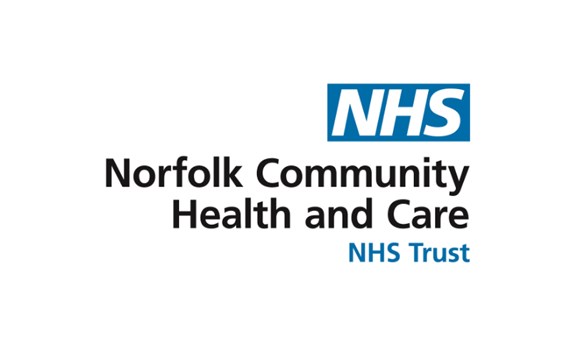Norfolk Community Health & Care NHS Trust (NCH&C) serves nearly 90,000 people and provides care to patients in their homes, places of care, community hospitals, outpatient units and health centres.
At the 2017 Fleet Hero Awards, the Trust won the Smarter Travel award in recognition of their excellent progress on reducing grey fleet mileage – private vehicles used for work purposes.
Challenge
- Providing healthcare within the community requires staff to travel an estimated 3.7 million miles each year – enough to circle the Earth approximately 152 times.
- The needs of every patient must be met while the environmental impact and cost of travel is minimised.
- Energy Saving Trust & British Vehicle Rental and Leasing Association estimate that 624 million miles are driven each year by NHS employees in private cars, costing £317 million. On average, grey fleet vehicles are older, and more polluting and expensive for organisations than alternatives like lease and pool cars.
Process
Ensuring effective travel decisions
The Trust first implemented a travel policy in 2013, following negotiations with unions and a full staff consultation.
The travel policy encourages employees to use a lease car (company car) if they drive more than 3,500 business miles each year, and to join the pool and rental car scheme if they do not. Employees complete an annual travel assessment form, which allows the travel office to verify an employee’s choice is appropriate, given their mileage.
When planning journeys, employees use a travel hierarchy which promotes pool bikes, public transport, pool cars (for journeys under 70 miles) and rental cars (for journeys over 70 miles), with private vehicles the last resort.
As of August 2018, the Trust had 32 specialist pool cars, 37 pool cars some leased from Enterprise, 77 lease cars (company cars) and 33 salary sacrifice cars, one car share (yourdrive), plus daily rentals as required.
Maximising pool car use
NCH&C works closely with its contractor, Enterprise Car Club, to ensure pool cars are used efficiently. A telematics system records an accurate mileage for each driver and compares how long a car has been booked for against the time the car is actually used.
This identifies employees who book but do not use the pool cars, and where a different travel choice would have been more appropriate. The Trust was one of the first to launch this type of telematics scheme with a large number of pool cars.
Grey fleet mileage
To further discourage grey fleet use, mileage is carefully monitored. An online system, Mileage Count, is used to approve and pay grey fleet mileages, at different rates:
- if the employee travels fewer than 3,500 miles, the rate is 28p a mile, lower than the HMRC approved rate of 45p per mile but compliant with Agenda for Change terms and conditions
- if an employee travels over 3,500 miles (and declined a lease car), they are paid at 56p a mile for the first 3,500 miles and 20p thereafter
The system requires postcodes and a reason for each journey which builds a better understanding of the nature of grey fleet travel and reduces claim ‘inflation’ (ie rounding up to the nearest 10 miles).
In 2018, monitoring grey fleet mileage has been enhanced by an expense system (e-Expense), which integrates with the Trust’s HR and payroll system (ESR). This allows more automation, reducing costs, and gathers additional information, such as passenger names when claiming passenger mileage.
The new system will tighten compliance and audit controls, and include ‘shortest route calculations’ with a map for staff to use. The system has delivered savings of around £40,000 and provides better data, more control and an improved user experience.
Finally, the Trust uses GMP DriverCare for licence and vehicle checks, ensuring the Trust fulfils their duty of care and complies with the Health & Safety at Work and Corporate Manslaughter Acts.
Engagement
In 2011, the Trust held roadshows to encourage staff to improve their travel practices and discuss the developing travel policy. More were held in 2016, which offered test drives of electric and hybrid vehicles to encourage staff to make the switch for their next company car or salary sacrifice vehicle.
In 2017, a Q&A morning with Enterprise answered employees’ queries about pool cars. This provided valuable insight into existing problems, such as clarifying the process for reporting damage.
The Trust is investigating the potential re-procurement of their pool car fleet and is seeking staff opinions through surveys. As well as ideas for improvements, the Trust has found that larger estate-style vehicles are ‘must-haves’ for community staff who are working out of hours and carrying large amounts of equipment.
Moving forward, the Trust is considering electric and hybrid vehicles and installing charge points at their main site in Norwich.
Results
Implementing the travel policy saved the Trust £500,000 in its first two years, reduced carbon emissions and improved risk management.
The fall in grey fleet mileage has far exceeded the increased mileage in lease, pool cars and rental cars. Fewer miles are now being driven by employees, and where journeys are undertaken, they are more likely to be in newer, less polluting, well-managed vehicles. On average, staff mileages have fallen by 25%, without compromising patient care or service delivery.
Between 2015/16 and 2016/17:
- grey fleet mileage fell by 19% (752,000 fewer miles driven)
- miles driven in company cars have increased by 42% (202,000 more miles)
- miles driven in pool cars and daily hire has decreased by 19% (73,000 fewer miles)
- total mileage decreased by 13% (623,000 fewer miles)
- total spend on travel fell by 13%
Since 2007/08, total annual mileage has fallen by 44%. Grey fleet mileage alone has fallen from over five million miles to three million miles.
